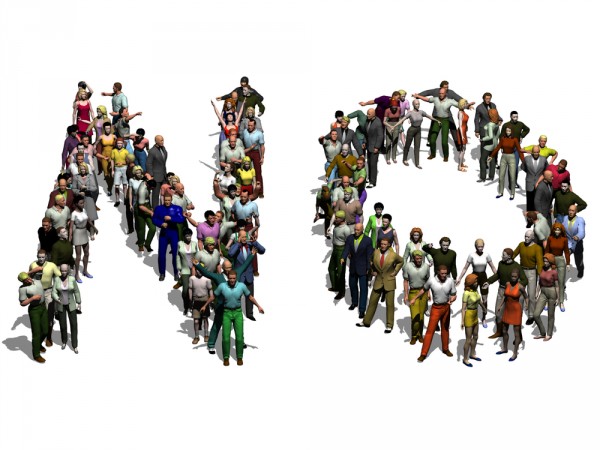Goodbye noisy neighbors, I quit Nextdoor
Six days ago, Facebook notified me that my personal information had been pilfered in a recently revealed hack affecting tens of millions subscribers. Lovely. Why don't you kick me in the head, too, Mark Zuckerberg? Perhaps you would prefer a baseball bat, so you can beat me to death instead? I responded by removing most of the same information from my FB and started a content purge ahead of possible account deletion.
Since then, I have been on a social media account rampage, which turned my sights to Nextdoor, where I joined on Aug. 29, 2017 (my Facebook is 12 years old, for comparison). When checking privacy settings, I discovered that the social network lists your actual address (presumably by default) for locals to see. The only other option is the street where you reside—what I switched to. Do I really want cranky neighbors coming up to my door and rap-rap-rapping? Or provide would-be burglars a place to break into, after observing my habits and schedule online and off? Eh, no! I appreciate that someone had to invite me to Nextdoor, which verified my residence to be part of the local network. But sharing my street or actual address is too public for me. Late yesterday afternoon, I deactivated my account. But reasons are bigger, with the privacy thing being but one.
In principle, the Nextdoor concept is well-conceived: Build community among people living close to one another rather than interact across the far reaches of the InterWebs on the likes of Facebook. In practice, my experience is something else: Busy-bodies spend too much time whining about their neighbors. I liked my neighborhood more when knowing less about the people living here—or the amount of hit-and-run accidents, loud motorcycles, package thefts, and other so-called crimes or problems amplified by hundreds of virtual megaphones. My sense of safety and well-being has greatly diminished from using Nextdoor. Stated differently: Noisy neighbors spread fear and paranoia.
Little things accumulated, leading to my exit. For example, on the same day that Facebook contacted me, the neighborhood sponsored a Cookies with the Cops meeting, where increasing number of crime reports—many of them posted to Nextdoor—was a topic raised by concerned citizens. One police officer explained that if a so-called incident isn't documented, "it didn't happen". He likened anything else to phone chains of old, where gossiping along a line of calls turned one thing into a hundred. He referred to the Get It Done San Diego mobile app as the go-to place for non-emergency interaction with the city's finest. I wondered, but didn't say, about crime and Nextdoor identifying where people live.
Additionally annoying: The number of posts complaining and accusing of wrongdoings—and the crazy responses that follow—presenting one-sided tellings of events as fact, while being unverified. Similarly, too many posts or replies are unneighborly. Many of these are good humor, I must admit, and they're almost worth staying on the social network for. But parody Twitter feed @bestofnextdoor captures the ridiculousness, collected from across the national Nextdoor network (typically, subscribers see activity in their community, only). The feed isn't affiliated with the social service, and it is a hoot to read.
So, privacy concerns aside, I left for an amalgamation of reasons largely interconnected. When deactivating my account, I chose "Other" in the short list of reasons for leaving. Nextdoor asked for explanation and suggestions to improve the service, which I gave:
Quality of interaction causes neighbors to distrust one another. My overall observation: Nextdoor creates walls among residents rather than brings them together. I suggest hiring an analyst firm to run blind surveys to test attitudes among people using Nextdoor and those who do not, with some measure of time as important criteria. My hypothesis: Nextdoor users feel less safe than their non-subscriber neighbors and more distrustful of everyone, while being overly aware of bad behavior and crime. Further, I hypothesize that these attitudes developed or increase from Nextdoor interactions rather than the social network drawing out people with these attitudes.
Because I don't trust that anything on any of these social networks really ever is deleted with account closures, I purged my seven posts and five items previously listed for sale (and marked sold) beforehand. The 150 or so replies to others' posts or comments will remain for whomever wants to read them. Nextdoor gave me something for free, I leave behind something in return.
Photo Credit: diez artwork/Shutterstock

